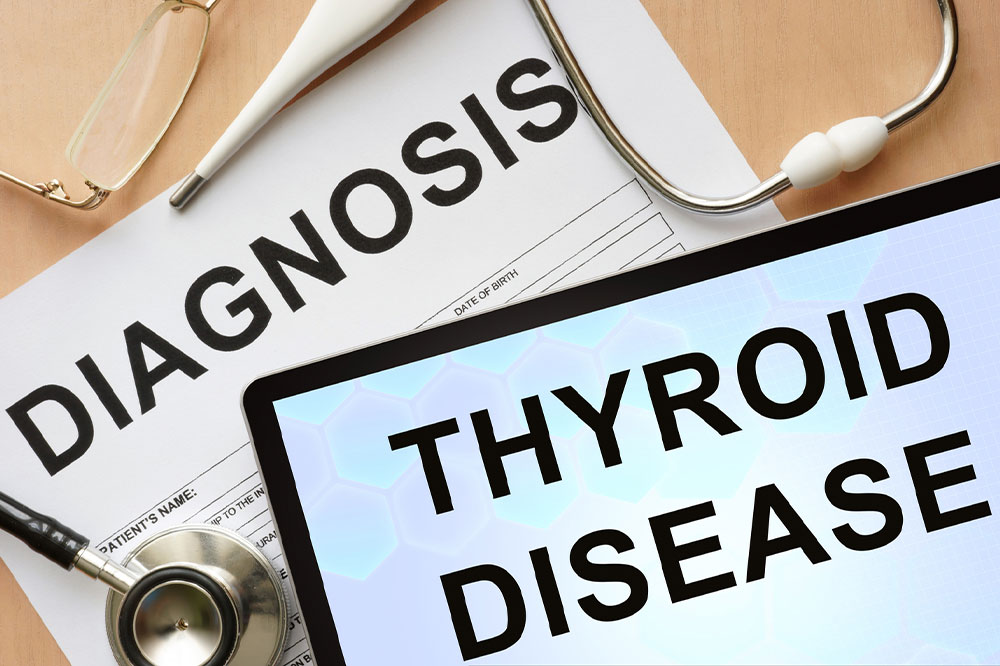Comprehensive Guide to Thyroid Disorders: Symptoms, Causes, Natural Remedies, and Risks
This comprehensive guide explores thyroid disorders, including symptoms, causes, natural treatments, and risks. It highlights the vital functions of the thyroid gland in regulating metabolism and the importance of early diagnosis and lifestyle adjustments for effective management. Learn about hyperthyroidism and hypothyroidism, their symptoms, causes, and how natural remedies can support overall thyroid health.

Comprehensive Guide to Thyroid Disorders: Symptoms, Causes, Natural Remedies, and Risks
The thyroid gland, a vital butterfly-shaped organ located at the front of the neck, plays a crucial role in maintaining the body's overall metabolic health. This small but powerful gland produces hormones that regulate numerous bodily functions, including energy levels, temperature control, heart rate, and growth. The thyroid's activity is finely tuned by the pituitary gland in the brain through the secretion of Thyroid-Stimulating Hormone (TSH), which signals the thyroid to produce hormones like T4 (thyroxine) and T3 (triiodothyronine). Additionally, the thyroid produces calcitonin, a hormone involved in calcium regulation in the blood, contributing to bone health and metabolic balance.
The Role of the Thyroid in the Body
The thyroid's primary function is to produce hormones that influence almost every cell in the body. These hormones are essential for controlling the speed of metabolic processes, affecting how the body converts food into energy. When the thyroid functions correctly, it supports healthy growth, development, energy expenditure, and overall well-being. However, when the gland becomes imbalanced—either producing too much or too little hormone—it can lead to various health issues that impact daily life significantly.
Understanding Hyperthyroidism and Hypothyroidism
Thyroid disorders predominantly manifest as hyperthyroidism or hypothyroidism, depending on whether the gland produces excess hormones or insufficient amounts.
Hyperthyroidism, also known as an overactive thyroid, occurs when the thyroid releases too much hormone into the bloodstream. This condition is frequently caused by autoimmune disorders like Graves’ disease, where the immune system mistakenly attacks the thyroid gland, leading to overstimulation. Other causes include thyroid inflammation (thyroiditis), benign tumors, or excessive intake of iodine, which fuels hormone production.
The symptoms of hyperthyroidism are diverse and often noticeable. Common signs include a visible swelling or goiter in the neck, nervousness, rapid or irregular heartbeat, hand tremors, increased appetite with rapid weight loss, heat intolerance, excessive sweating, irregular menstrual cycles, and in some cases, impotence. These symptoms reflect the heightened metabolic rate and overstimulation of bodily systems, which, if left untreated, can lead to serious health complications.
Conversely, hypothyroidism, or an underactive thyroid, results from the gland producing too few hormones. This condition is frequently caused by autoimmune diseases such as Hashimoto’s thyroiditis—where the immune system attacks and gradually destroys the thyroid tissue—along with inflammation, surgical removal of the thyroid, or damage to the pituitary gland. Other causes include iodine deficiency and certain medications.
Symptoms of hypothyroidism tend to be more subtle initially but can worsen over time. Patients often experience fatigue, unexplained weight gain, cold sensitivity, dry and coarse skin, hair thinning or hair loss, constipation, and a decreased mental pace. These symptoms reflect the slow-down of metabolic processes and hormonal activity, affecting mood, energy, and overall health. Mild cases can be managed with proper treatment, while severe hypothyroidism may lead to myxedema or goiter if untreated.
Causes of Thyroid Imbalances
Thyroid abnormalities can arise from both autoimmune and non-autoimmune factors. Autoimmune conditions such as Hashimoto’s thyroiditis and Graves’ disease are leading causes, where the immune system mistakenly targets the thyroid gland, causing inflammation and hormone dysregulation. Non-autoimmune causes include iodine deficiency—a critical element necessary for hormone synthesis—pituitary gland dysfunction, chronic stress, certain medications, sleep disturbances, and exposure to environmental toxins. Sometimes, the precise cause remains idiopathic, meaning it is unknown despite thorough investigation.
Common symptoms associated with thyroid disorders include persistent tiredness, fluctuations in weight, changes in skin texture—including dryness or excessive oiliness—hair problems, mood swings, muscle weakness, and irregular menstrual cycles. In some severe cases, abnormal heart rhythms or tremors might be observed, indicating a more advanced disruption in thyroid function.
Addressing thyroid health requires a comprehensive approach, combining lifestyle modifications, natural remedies, and medical interventions. Maintaining a balanced diet rich in fruits, vegetables, lean proteins, and healthy fats supplies essential nutrients that support thyroid function. Incorporating herbal teas such as ginger or chamomile can further promote relaxation and hormonal balance.
Regular physical activity enhances circulation, improves metabolic efficiency, and supports overall health. Stress management techniques like yoga, meditation, and adequate sleep are crucial for hormone regulation, especially in autoimmune cases. Supplements such as iodine, selenium, zinc, and vitamin D may help optimize thyroid health; however, their use should be guided by a healthcare professional to prevent adverse effects and interactions.
Early detection and effective management are vital for mitigating symptoms and preventing complications, thereby significantly improving quality of life for individuals affected by thyroid disorders.





